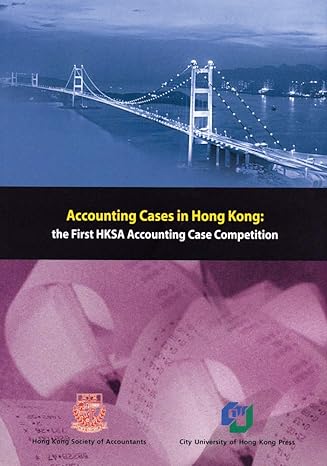Question
Should Ellen Flood have been allowed to retain the insurance proceeds in this case? Did Ellen Flood act unethically in this case? Did she act
Should Ellen Flood have been allowed to retain the insurance proceeds in this case?
Did Ellen Flood act unethically in this case?
Did she act illegally?
What would be the economic consequences if persons could recover insurance proceeds for losses caused by their illegal activities?
Ellen and Richard Alvin Flood, who were married in 1965, lived in a house trailer in Louisiana. Richard worked as a maintenance man and Ellen was employed at an insurance agency. Evidence at trial showed that Ellen was unhappy with her marriage. Ellen took out a life insurance policy on the life of her husband and named herself as beneficiary. The policy was issued by Fidelity & Guaranty Life Insurance Co. (Fidelity). In June 1972, Richard became unexpectedly ill. He was taken to the hospital, where his condition improved. After a visit at the hospital from his wife, Richard died. Ellen was criminally charged with the murder of her husband by poisoning. Evidence showed that six medicine bottles at the couple's home, including Tylenol and paregoric bottles, contained arsenic. The court found that Ellen had fed Richard ice cubes laced with arsenic at the hospital. Ellen was tried and convicted of the murder of her husband. Ellen, as beneficiary of Richard's life insurance policy, requested Fidelity to pay her the benefits. Fidelity refused to pay the benefits and returned all premiums paid on the policy. This suit followed. The district court held in favor of Ellen Flood and awarded her the benefits of the life insurance policy. Fidelity appealed. Issue. Was the life insurance policy an illegal contract that is void? Opinion. Lear, Judge. Louisiana follows the majority rule that holds, as a matter of public policy, that a beneficiary named in a life insurance policy is not entitled to the proceeds of the insurance if the beneficiary feloniously kills the insured. The genesis of this litigation is the escalating criminal action of Ellen Flood, bent on taking the life of her lawful husband. Our courts have previously adjudicated (1) the issue of the cause of death of Richard Flood, (2) the culprit in that death, and (3) the motives for the death. Under the peculiar circumstances of the case, it was unreasonable of the trial court not to consider and to assign great weight to the mountain of evidence tending to prove Mrs. Flood's scheme to defraud both the insurer, Fidelity, and the insured, Mr. Flood. It is clear to us that the entirety of the transaction here reviewed is tainted with the intendment of Ellen Flood to contravene the prohibitory law. Life insurance policies are procured because life is, indeed, precarious and uncertain. Our law does not and cannot sanction any scheme that has as its purpose the certain infliction of death for, inter alia, financial gain through receipt of the proceeds of life insurance. To sanction this policy in any way would surely shackle the spirit, letter, and life of our laws. Holding. The appellate court held that the life insurance policy that Ellen Flood had taken out on the life of her husband was void based on public policy.
Step by Step Solution
There are 3 Steps involved in it
Step: 1

Get Instant Access to Expert-Tailored Solutions
See step-by-step solutions with expert insights and AI powered tools for academic success
Step: 2

Step: 3

Ace Your Homework with AI
Get the answers you need in no time with our AI-driven, step-by-step assistance
Get Started


